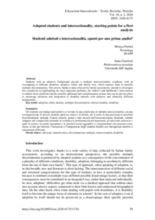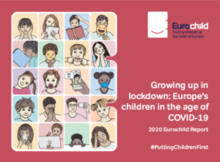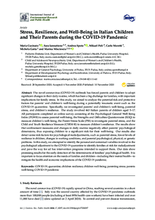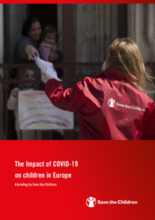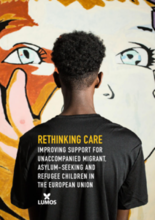Displaying 21 - 30 of 95
UNICEF is seeking a consultant to conduct a mapping of promising and good practices on MHPSS services relevant for migrant and refugee adolescents.
This article, thanks to data collected by family associations, intends to investigate multiple intersectionality of students with adoptive background by highlighting the most important problems, the school’s and healthcare’s interventions to address those problems and the possible additional and complementary actions that can be put into place to encourage inclusion and integration of disabled students with adoptive and ethnically different backgrounds.
This report reflects on the effects of the coronavirus pandemic on children. It compiles information gathered from 25 countries across Europe, and provides recommendations for improving public policies in the short and long-term to support better outcomes for children and families, including children in alternative care or at risk of separation.
In this study, the authors aimed to analyze the potential risk and protective factors for parents’ and children’s well-being during a potentially traumatic event such as the COVID-19 quarantine.
This study examines a sample of 1705 cases of unaccompanied and separated children (UASCs) included in a pilot project for early recovery child protection intervention.
This evaluation study examined a Family Services Centre (FSC) operating in a socio‐culturally deprived suburban area of Southern Italy to explore how to promote innovative practices to meet increasingly complex family needs.
This evaluation study examined a Family Services Centre (FSC) operating in a socio‐culturally deprived suburban area of Southern Italy to explore how promoting innovative practices to meet increasingly complex family needs.
This paper is divided into two parts: The first details the evidence from the ground, painting the picture of life for children during the pandemic in different European countries with statistics and examples, and giving a set of recommendations on measures that national governments across Europe can take to help protect children from the worst impacts of the crisis relating to the economic impacts on families, loss of services, access to education and targeted measures for children in migration. The second part focuses on recommendations to the EU institutions on how EU policy and funding can support and complement these national-level actions in these challenging times.
This report maps and assesses the forms of care provided to unaccompanied migrant, asylum-seeking and refugee children in six European Union Member States: Bulgaria, France, Italy, Greece, the Netherlands and Spain.
In this blog post, Anna Riatti - coordinator of the UNICEF Refugee and Migrant Response in Italy - describes how UNICEF is supporting refugee and migrant children in Italy in light of the COVID-19 crisis.

